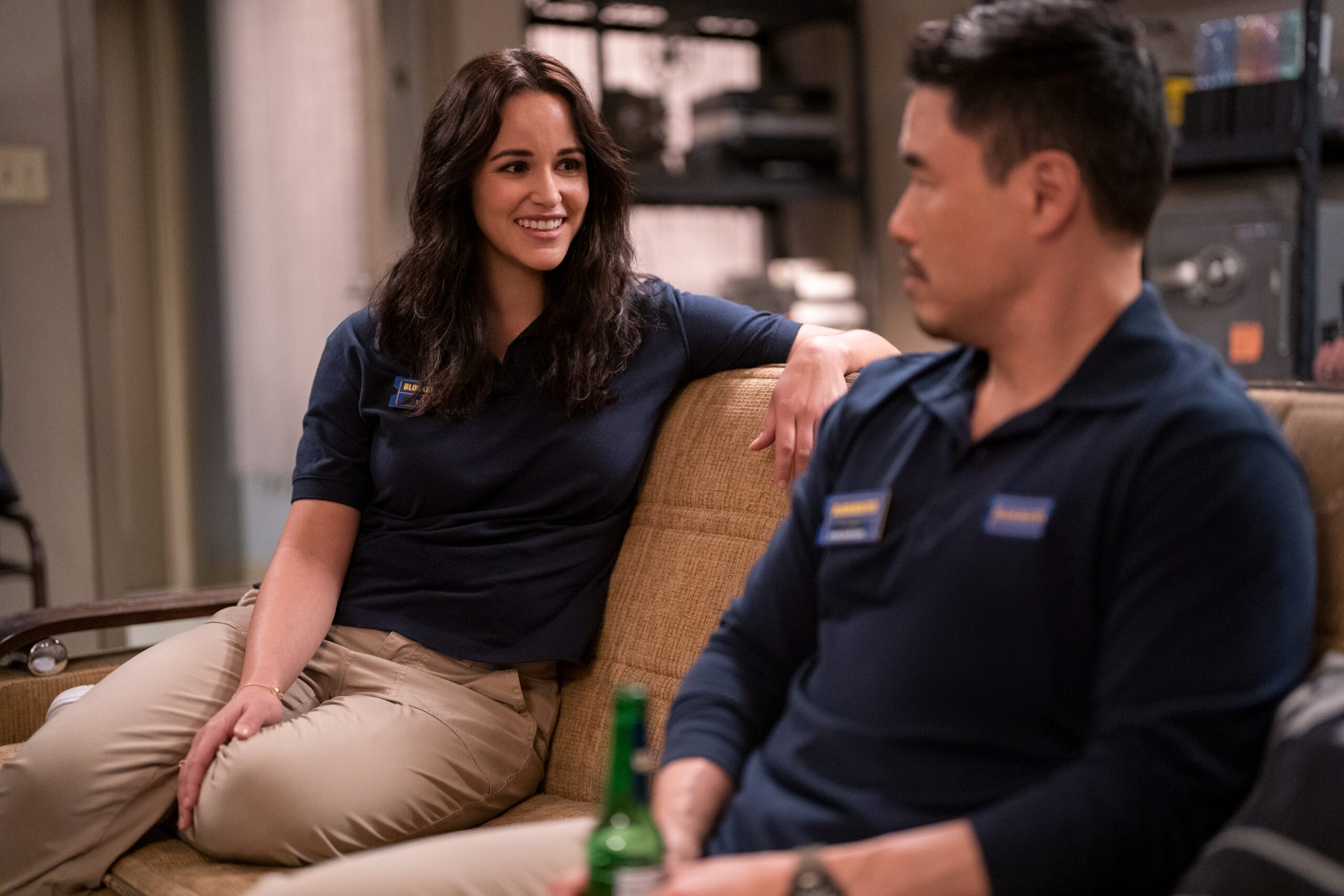Going into Netflix’s Blockbuster, it’s important to know that it’s very hard to name a workplace comedy that I haven’t watched and subsequently fallen in love with. From the OGs like Cheers, The Office, and Parks and Recreation, to contemporary offerings like Brooklyn Nine-Nine, Superstore, and Abbott Elementary, the workplace comedy has become an essential fixture of television and what makes it great. It sees our jobs as an opportunity for humor, not just a means of survival, with some heartfelt moments mixed in to show that our co-workers and bosses can truly become our family. It’s also one of the few instances in entertainment where the story advocates for workers’ rights, rejects the notion of “the customer is always right,” and sees public servants and essential workers as real people. For those reasons, the genre has quickly become one of my favorites on TV.
So when I heard that Netflix was creating a workplace comedy based on the last Blockbuster in the world (ironic, given that the former put the latter out of business in the late 2000s), I knew I had to delve in and binge all ten episodes of the first season. And while what I found in Blockbuster was promising, there were also aspects of the show that didn’t quite hit the mark for me.
On the surface, it has all the tropes I’ve come to expect from a workplace comedy: the awkward but well-meaning boss, the central “will they, won’t they” slow-burn romance, the comedic relief, and a slew of pop culture references. Here, of course, Blockbuster offers its own unique twists. Blockbuster’s owner Timmy (Randall Park) realizes he’s had a years-long crush on Eliza (Melissa Fumero) within the first episode. The show uses the pop culture references as shout-outs to film lovers. And the workplace itself is a chain retail store that becomes the only one of its kind on earth overnight.

Unlike other workplace comedies, Blockbuster asks: How does someone keep a small business alive in the modern age, whose values of convenience and speed are in direct competition with that business? What happens when a corporate empire falls and you are the only one left standing? Especially now when there are too many streaming services to name, these are questions worth asking.
I also want to praise the unprecedented Latinx representation on screen, no doubt courtesy of the show’s Latina creator, showrunner, and executive producer Vanessa Ramos. Similar to Brooklyn Nine-Nine, Blockbuster features not one or two but three Latinx characters who 1) are not related to each other and 2) engage with their Latinidad in different ways. Connie, played by In the Heights icon Olga Merediz, is the hilarious abuela-like figure who offers advice to her younger co-workers but also lives a full, telenovela-rich life outside of Blockbuster. And as a bisexual Latine myself, seeing Carlos (Tyler Alvarez) thrive and face obstacles in romance as a bi person was both relatable and hilarious.
However, it’s really Melissa Fumero as Eliza who carries this show on her back, unsurprising given her previous roles. While I loved her in B99, she shines as the unsatisfied wife and mother who still maintains joy at work and harbors a secret, though reciprocated, crush on her boss–all with her trademark type-A personality reminiscent of her Amy Santiago character. With her monologues, comedic timing, and chemistry with every actor on set, I’ve never seen her so at the top of her acting game. At times, she embodied the main character even more than Timmy.

That said–and I don’t mean to play the comparison game–Blockbuster just didn’t grab me as much as previous workplace comedies have. It’s not that it wasn’t a nostalgia trip for someone like me who grew up frequenting Blockbusters at the tail end of their reign, or that there weren’t plotlines I genuinely enjoyed watching unfold.
But at the end of my binge-fest, I sat there feeling ambivalent about what I’d just seen, not feeling the urge to go around to everyone I know and demand they watch the show. Because throughout this first season, the show seemed to struggle to define its own voice, trying so hard to be funny or be better than its genre predecessors that it simply fell flat. Not all the characters felt as fleshed out as they could’ve been, especially Eliza’s husband, and I do wish we could’ve seen more racial diversity within the Latinx cast members themselves, who are all mixed and/or light-skinned. Basically, the epitome of “almost there, but not quite.”
At its heart, Blockbuster is an earnest entry into the workplace comedy genre with the potential to grow into an even better show (much like The Office) if Netflix decides to greenlight subsequent seasons. For now, it’s good but not great.

